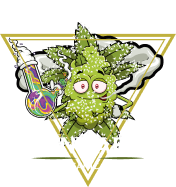So you've heard about the buzz surrounding medical cannabis in Thailand, and you're curious to learn more about the regulations and rules that govern its use. Well, you've come to the right place! Understanding the ins and outs of medical cannabis regulations in Thailand is crucial for anyone looking to navigate this new and exciting landscape.
From licensing requirements to cultivation restrictions, there's a lot to uncover. Let's dive in and shed some light on the path to understanding the world of medical cannabis regulations in Thailand.
Legalization of Medical Cannabis in Thailand
Understanding the legalization of medical cannabis in Thailand requires a clear grasp of the regulatory framework and its implications. In 2018, Thailand made history by becoming the first Southeast Asian country to legalize medical cannabis. This move was driven by a desire to provide relief to patients suffering from various medical conditions.
The regulatory framework established a system for medical cannabis production, distribution, and consumption under strict government control. It also allowed for research on cannabis as a potential medical treatment.
This significant step towards legalization signifies a progressive shift in Thailand's approach to cannabis, offering hope to patients and opening doors for further research and development. By legalizing medical cannabis, Thailand has demonstrated a commitment to providing alternative treatment options and embracing the potential benefits of cannabis for medical purposes.
Requirements for Medical Cannabis Licensing
When applying for a medical cannabis license in Thailand, ensuring compliance with all regulatory requirements is essential.
To obtain a license, you must meet the criteria set by the Food and Drug Administration (FDA) and the Ministry of Public Health. This includes providing detailed information about the cultivation, production, and distribution processes.
Additionally, you'll need to demonstrate that your facilities meet the necessary quality and security standards. The FDA requires that applicants have a comprehensive understanding of Good Agricultural Practices (GAP) and Good Manufacturing Practices (GMP) to ensure the safety and quality of medical cannabis products.
Moreover, it's crucial to prepare a robust business plan and financial projections to showcase the sustainability and viability of your medical cannabis operation.
Regulations on Cultivation and Production
Meeting the regulatory requirements for cultivating and producing medical cannabis in Thailand involves adhering to stringent guidelines set by the Food and Drug Administration (FDA) and the Ministry of Public Health. To obtain a cultivation license, you must demonstrate compliance with security measures, quality control, and record-keeping. Additionally, the cultivation site and production facilities must meet specific standards to ensure the quality and safety of medical cannabis. The table below provides an overview of key regulations for cultivation and production:
| Regulatory Aspect | Description | Compliance Requirement |
|---|---|---|
| Security Measures | Secure storage and restricted access | Surveillance systems and alarms |
| Quality Control | Testing for potency, contaminants, and purity | Regular lab testing and analysis |
| Record-keeping | Documentation of cultivation and production | Detailed logs and reporting systems |
These regulations are crucial for ensuring the responsible and safe cultivation and production of medical cannabis in Thailand.
Moving forward, it's essential to understand the distribution and sales restrictions in place to navigate the medical cannabis landscape in Thailand effectively.
Distribution and Sales Restrictions
To ensure compliance with the regulations on distribution and sales restrictions, your company must obtain the appropriate licenses and adhere to strict guidelines set by the Thai FDA and Ministry of Public Health.
When navigating the distribution and sales of medical cannabis in Thailand, it's crucial to consider the following:
- Authorized Distribution Centers: Only licensed distribution centers are permitted to handle the sale and distribution of medical cannabis products.
- Sales Restrictions: The sale of medical cannabis is restricted to authorized medical facilities and pharmacies.
- Packaging and Labeling Requirements: Strict regulations govern the packaging and labeling of medical cannabis products, including requirements for clear labeling of THC and CBD content.
Compliance and Monitoring Measures
To ensure compliance with medical cannabis regulations in Thailand, you need to undergo regular audits and inspections of your facilities and operations. This helps to ensure that you are meeting the stringent standards set by the Thai authorities. The table below outlines the key compliance and monitoring measures that you should be aware of:
| Compliance Measures | Monitoring Measures |
|---|---|
| Regular audits | Surveillance cameras |
| Documented SOPs | Quality control checks |
| Employee training programs | Inventory tracking systems |
| Product testing | Security protocols |
| Recordkeeping | Compliance reporting |
Conclusion
So, now you understand the ins and outs of medical cannabis regulations in Thailand. It's as simple as navigating a maze blindfolded. But hey, at least you won't get lost, right?
Keep up with the ever-changing rules and maybe one day you'll be able to make sense of it all. Good luck!
